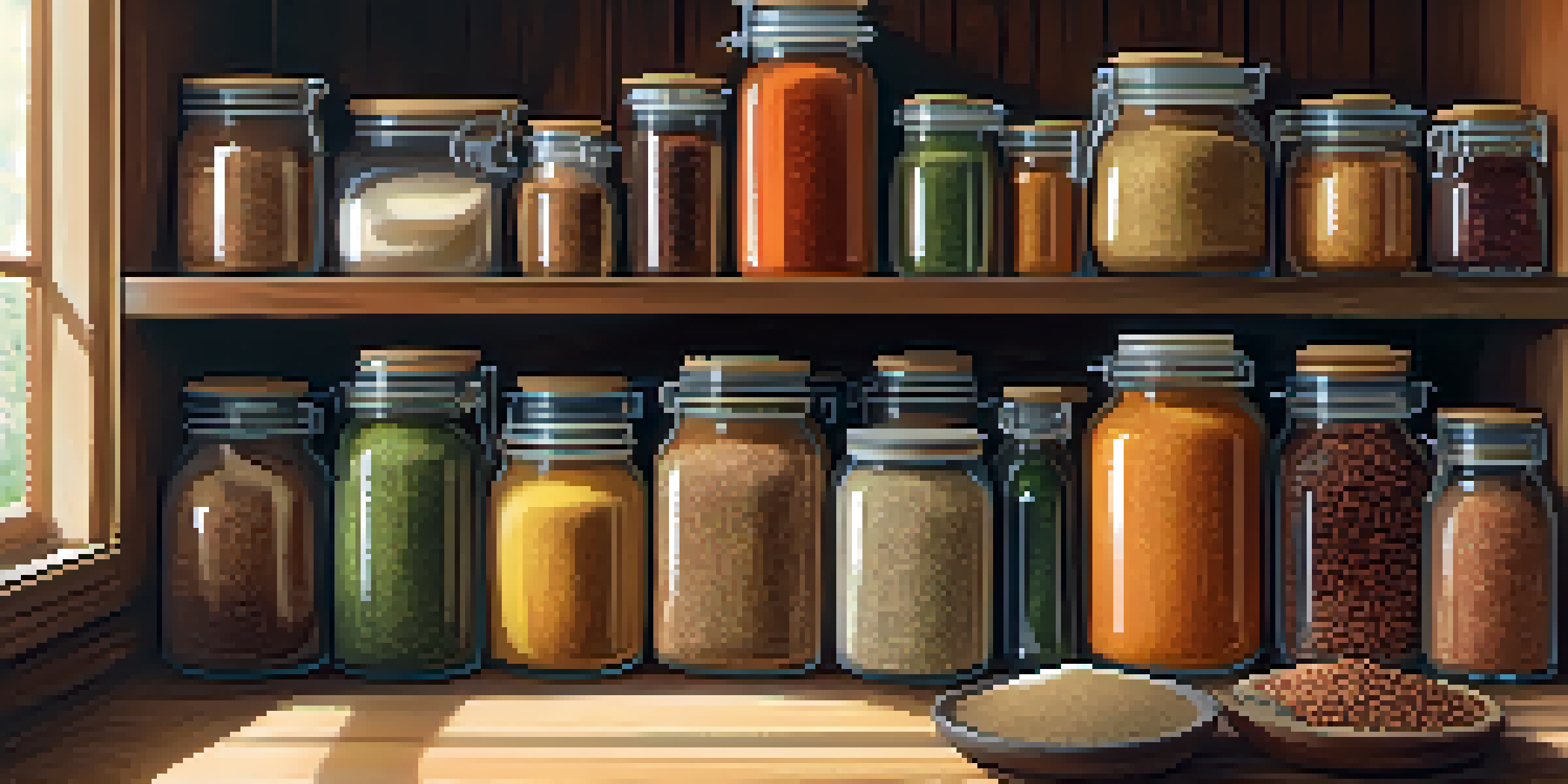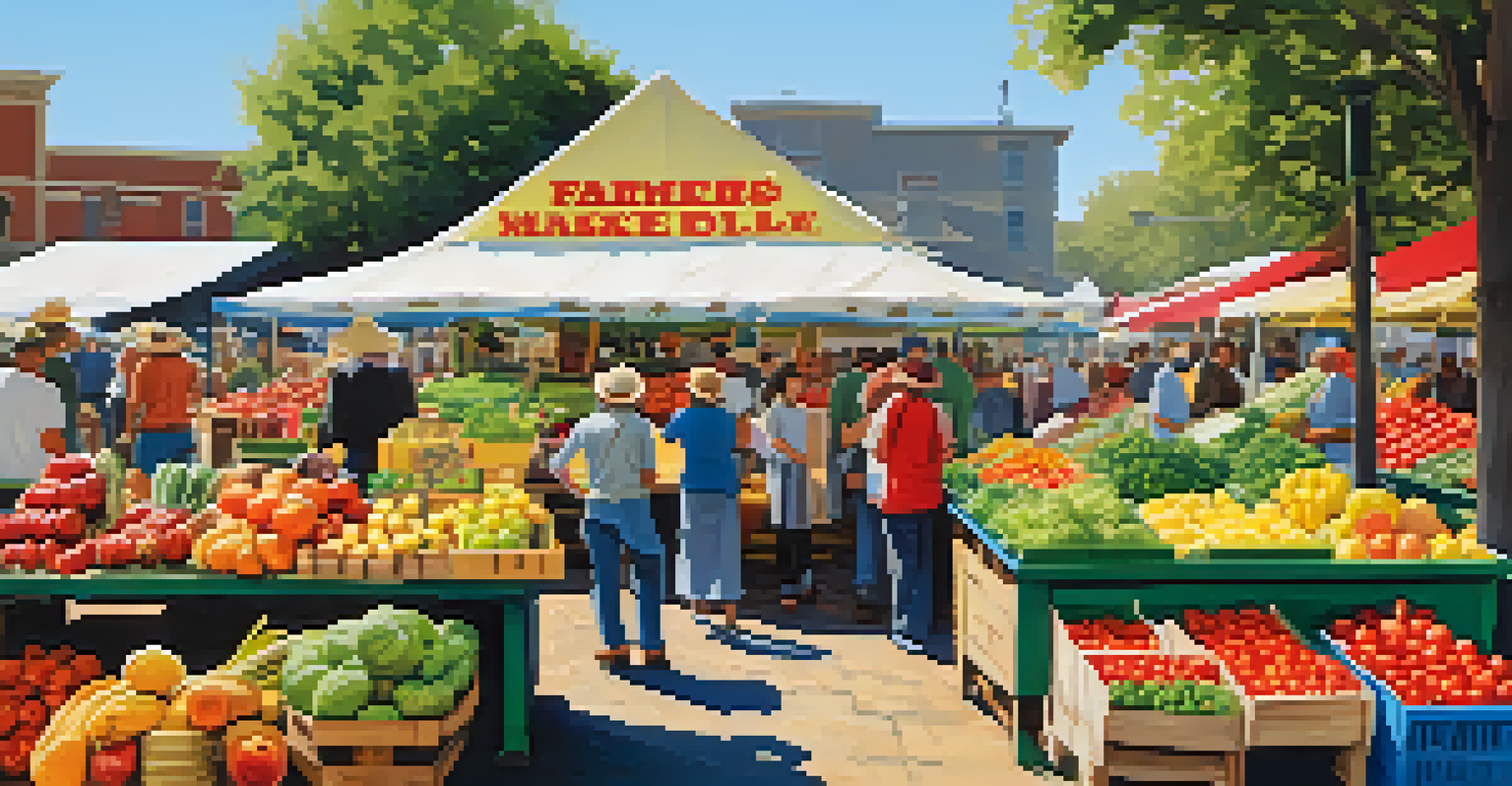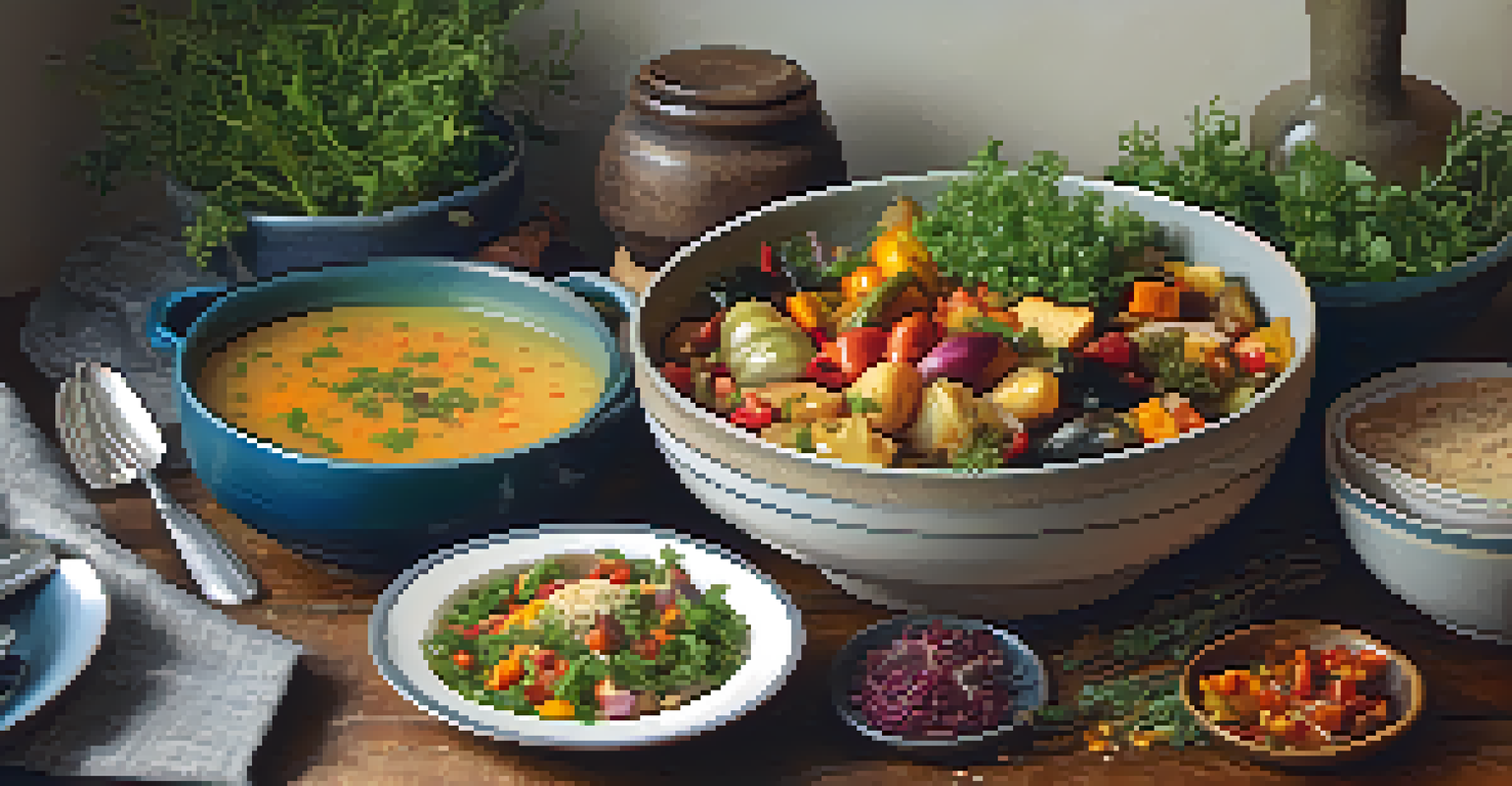Tips for Planning Vegan Meals to Reduce Food Waste Effectively

Understand Your Ingredients Before Shopping
Before you even step into the grocery store, take stock of what you already have at home. This not only helps in preventing duplicate purchases but also sparks ideas for meals you can create with what’s on hand. For instance, if you’ve got half a bag of lentils and a few vegetables, you could whip up a hearty stew.
Waste is a tax on the whole people.
Making a list based on your pantry inventory can be incredibly beneficial. It keeps your shopping focused and prevents impulse buys that often lead to food waste. Just like planning a road trip, having a clear route in mind helps you reach your destination more efficiently.
Additionally, be mindful of expiration dates and how long items will last. Some fresh produce might need to be consumed sooner than others. Understanding these details can help you prioritize what to cook and make the most of your groceries.
Plan Your Meals for the Week Ahead
Meal planning is like creating a roadmap for your week. By outlining what you intend to cook each day, you minimize the chance of last-minute decisions that often result in wasted food. For instance, if you know you’ll be busy on Wednesday, plan for a quick stir-fry that uses up leftover vegetables from earlier in the week.

Using a meal planner or an app can help you keep track of your recipes and ingredients. This way, you can efficiently rotate through your pantry items and consume perishables before they spoil. Think of it as a game of Tetris, where you fit your meals around what you have.
Plan Meals to Minimize Waste
Meal planning helps you efficiently use ingredients and reduce the likelihood of food waste.
Don’t forget to include versatile ingredients in your meal plan. Items like quinoa, beans, and leafy greens can be used in various dishes, making it easier to adapt your meals based on what needs to be used up. This flexibility is key in reducing food waste.
Incorporate Leftovers Creatively
Leftovers don’t have to be boring. In fact, they can be the foundation for exciting new meals! For example, if you have leftover roasted vegetables, toss them into a salad or blend them into a soup for a quick meal.
The greatest threat to our planet is the belief that someone else will save it.
Get creative with how you present your leftovers. A stir-fry one night can become a filling grain bowl the next day. It’s all about transforming what you have into something fresh and appetizing.
Consider having a ‘leftover night’ once a week where you clear out your fridge. This not only helps reduce waste but also challenges your cooking skills, as you’ll need to come up with inventive ways to use what’s left.
Focus on Seasonal and Local Produce
Buying seasonal fruits and vegetables is a fantastic way to reduce waste and support local farmers. Seasonal produce is often fresher and lasts longer, which means you’ll have more time to enjoy it before it goes bad. Plus, it usually tastes better!
Visiting local farmers' markets can be a rewarding experience. You can chat with the farmers about their produce and get tips on how to store and prepare it. It’s like having a personal guide to the freshest ingredients in your area.
Utilize Leftovers Creatively
Transforming leftovers into new meals can make dining exciting while minimizing waste.
By prioritizing local and seasonal options, you’re not only minimizing waste but also contributing to a more sustainable food system. It’s a win-win situation where you get delicious food, and the environment benefits too.
Use Proper Storage Techniques
How you store your food can significantly impact its shelf life. For example, keeping certain fruits and vegetables in the fridge, while others do better at room temperature can make all the difference. Understanding these nuances helps you keep your produce fresh for longer.
Consider investing in reusable produce bags or airtight containers. These can help maintain freshness and reduce waste from single-use plastics. It’s a small change that can have a big impact on how long your food lasts.
Labeling items with purchase dates can also be a simple yet effective strategy. This way, when you open your fridge, you’ll know exactly what needs to be used first, helping you stay organized.
Embrace Freezing and Preserving Techniques
If you find yourself with surplus ingredients, don’t hesitate to freeze or preserve them. Freezing fruits and vegetables can extend their lifespan significantly, allowing you to enjoy them later when they might not be in season. For example, leftover bananas can be frozen for smoothies or baking.
You can also get creative with preserving methods like pickling or making jams. These techniques are a fun way to enjoy your favorite flavors year-round while minimizing waste. Imagine turning an overabundance of tomatoes into a delicious homemade salsa!
Support Local Produce
Buying seasonal and local produce not only tastes better but also supports sustainable practices.
Just remember to label your frozen items with dates so you can keep track of what you have. This will make it easier to rotate through your frozen goods and ensure nothing gets forgotten at the back of the freezer.
Connect with Community Resources for Food Sharing
Connecting with community resources can be a great way to ensure that surplus food doesn’t go to waste. Many local organizations focus on food sharing, where you can donate your extra produce or even swap with neighbors. It’s a fantastic way to build community while also reducing waste.
Social media platforms often have local groups dedicated to food sharing. These can be great places to post what you have available, whether it’s extra zucchini or a bag of kale. You might be surprised by how many people are willing to trade or take what you can’t use.

Engaging with your community not only helps reduce food waste but also fosters a sense of connection and support. It’s a reminder that we’re all in this together, working towards a more sustainable future.